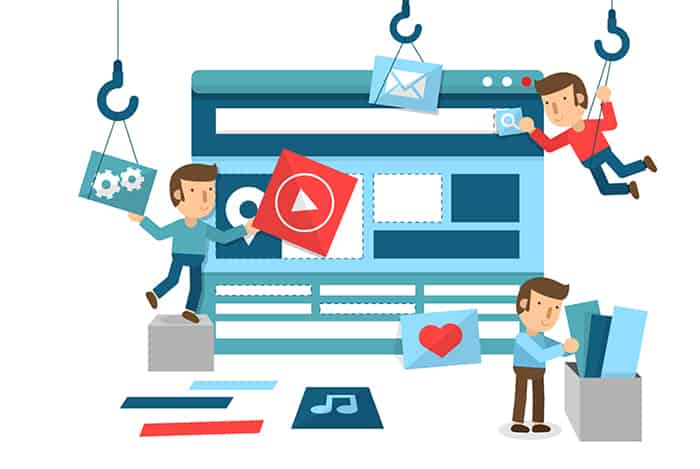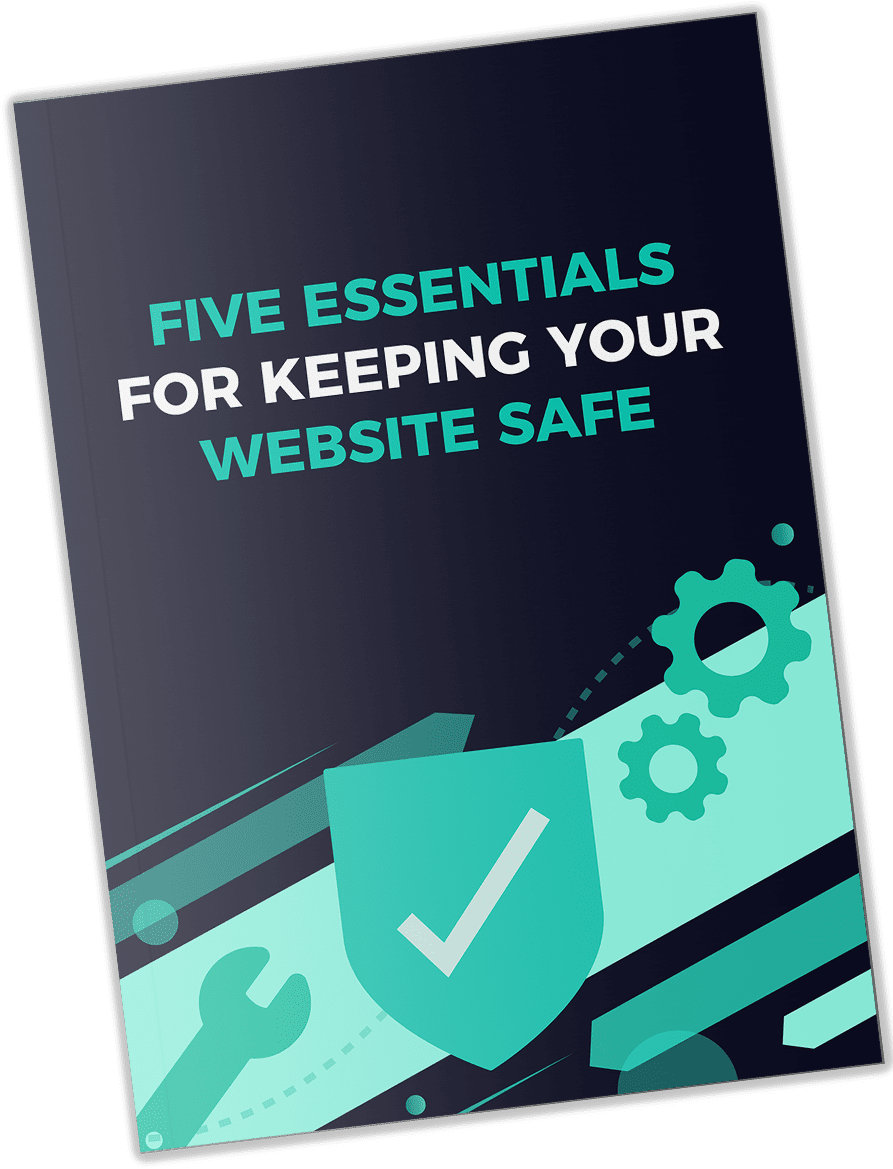
The Importance of Regular Website Maintenance

Did you just get your new website up and running? Or maybe you've had a website for a while now? Either way, once your site is running, it's crucial to maintain it. Just like you take your car in for oil changes and tire rotations, you need to show the same love and commitment to your website. In this article, we'll go over some of the problems that arise from poor maintenance upkeep and some of the benefits that come from routine updates.
Pitfalls of Poor Website Maintenance:
Many people don't realize that no matter what CMS they're using, it's still imperative to enforce regular security updates and have a long-term website maintenance plan. One of the most obvious reasons you should keep up with your site's maintenance is getting hacked, but other smaller-scale problems could occur as well if you fail to keep up with your website updates. Below are some of the issues that can arise if you don't run your website's updates.
Security
Security is one of the main reasons why website maintenance is so essential. While some people may think their site is too small and no one would care to hack it, they couldn't be more wrong. Some reasons your website could get hacked include:
- Stealing bandwidth
- Blackhat SEO spam campaigns
- Mining Bitcoin
- Drive-by downloads
Older websites are more likely to be hacked than ones that have more secure coding and modules that are up to date. All a hacker has to do is click on 'View Page Source' to see what version of WordPress you're running and determine if your site is outdated.
Poor User Experience
Website updates are important, not only because they provide more security, but they also allow for a better user experience by adding new features and functionality to your website. For example, if you are using an older version of WordPress, your experience is going to be a lot different than someone who is using the most up to date version.
Slow Loading Times
Speaking of poor user experience, another reason platforms come out with new releases is to make your website more efficient. Updates tend to come with several performance improvements that make your website faster. Have you ever visited a website that just took too long to load? A lot of people aren't willing to wait around for a site to load, which could be driving your visitors to your competitors. Speed is also a determining factor in SEO.
Google Page Speed Insights is a great tool that allows you to review your site speed and figure out the areas that need improving.
Wasted Resources
Time is money, and both are going down the drain when you fail to make updates to your website as they become available. When you have to go back and make these updates later, it ends up turning into a much larger development with more effort. Because of the increased number of updates and module changes over time, the impact that the missed updates have on the website is greater, meaning that the developer will have to spend a lot more time making the updates.
By implementing the update when it first becomes available, you're able to get the best functionality right away and have an overall improvement of your website.
Benefits of Routine Website Maintenance:
Now that you know some of the problems that can arise when failing to keep up with routine website updates, here are some in-depth benefits of regular maintenance.
Fresh Content
You want to keep readers coming back to your website, right? The best way to do that is with new content. People don't want to read outdated information about something that happened months ago or see the same content every week. Updating your website with new blogs, pages, images, promotions, and other content is vital to keep your audience coming back. Without it, your visitors might assume that you don't care about your business, or that the business is failing.
New Features
Technology has come a long way over the years and is still evolving at an incredible rate. It's become more important than ever to have features on your website that connect to social media because of the traffic you can get from it. And you'll also want to secure your site with an SSL certificate. This will encrypt communications and assure your customers that any personal information they input on your website will be safe with you.
Better User Experience
We've already gone over that poor website maintenance can lead to poor user experience. Your website is part of your business's image and will often be the first impression people have of your business since many people tend to research a company's website and social media before taking more action. Because of this, it's imperative that your site meets your visitors' expectations.
You'll want to routinely look at your website and make sure contact information, addresses, and any other pertinent info is up to date. If you've made any logo changes, name changes, or have decided to change your color scheme, you'll want to update your site to match.
Some other things you should monitor for a better user experience include:
- Broken links
- Page speed
- Page not found (404) errors
- Poor grammar and spelling
Regular Backups
You should perform backups regularly to ensure that your site can be rebuilt or reinstated if something happens. Two website elements that need to be backed up are:
- Code. This includes HTML, JavaScript, CSS, PHP code, plugins, themes, and other files. Anytime you make an update, and any time your CMS releases a new update, code should be backed up.
- Content. This includes videos, images, text, audio, and other content. At the very least, you should backup your content once per quarter.
Search Engine Optimization
Search engines, like Google, prefer websites that are fast, well-maintained, error-free, and have fresh content. Every time you update your website, you're giving search engines new material to rank your site with. Make sure your website is regularly updated with content and material related to the subjects that you want people to find your business with.
Software Updates
While most websites today are easy to edit, they are often complex software applications that need to be kept up to date for performance and security reasons, just like the operating system on your computer. For WordPress websites, you'll need to update the core software, themes, and plugins - and there is generally at least one official WordPress update each month.
When performing updates, make sure you do a backup first, that way if something goes wrong, you can roll back to a working version of your website.
Security
Most websites have thousands of lines of code, and hackers try to find vulnerabilities in that code to take advantage of your website. While you cannot be 100% protected against viruses and hackers, there are a few things you can do to prevent or fix them.
- Keep your hosting server's software and your website's software updated with the latest security releases and patches.
- If your website does get hacked - because there is still the possibility of this, even with the above measures - you'll want to remove the virus, clean up the site, and restore your data. You may need to contact any search engines and browsers that blacklisted your website because of the virus.
Like we said before, you can't be totally protected from hackers and viruses, but you can put yourself in a better position with regular maintenance.
Conclusion
We hope you have found this article helpful! Website maintenance is crucial, not only for security reasons but also for SEO and user experience. Your website is a big part of your business's image, so it's essential to keep it up to date and working well. If you don't know whether this is something you want to do yourself or have a developer do for you - check out this article!
FREE Guide
The 5 Essentials For Keeping Your Website Safe
